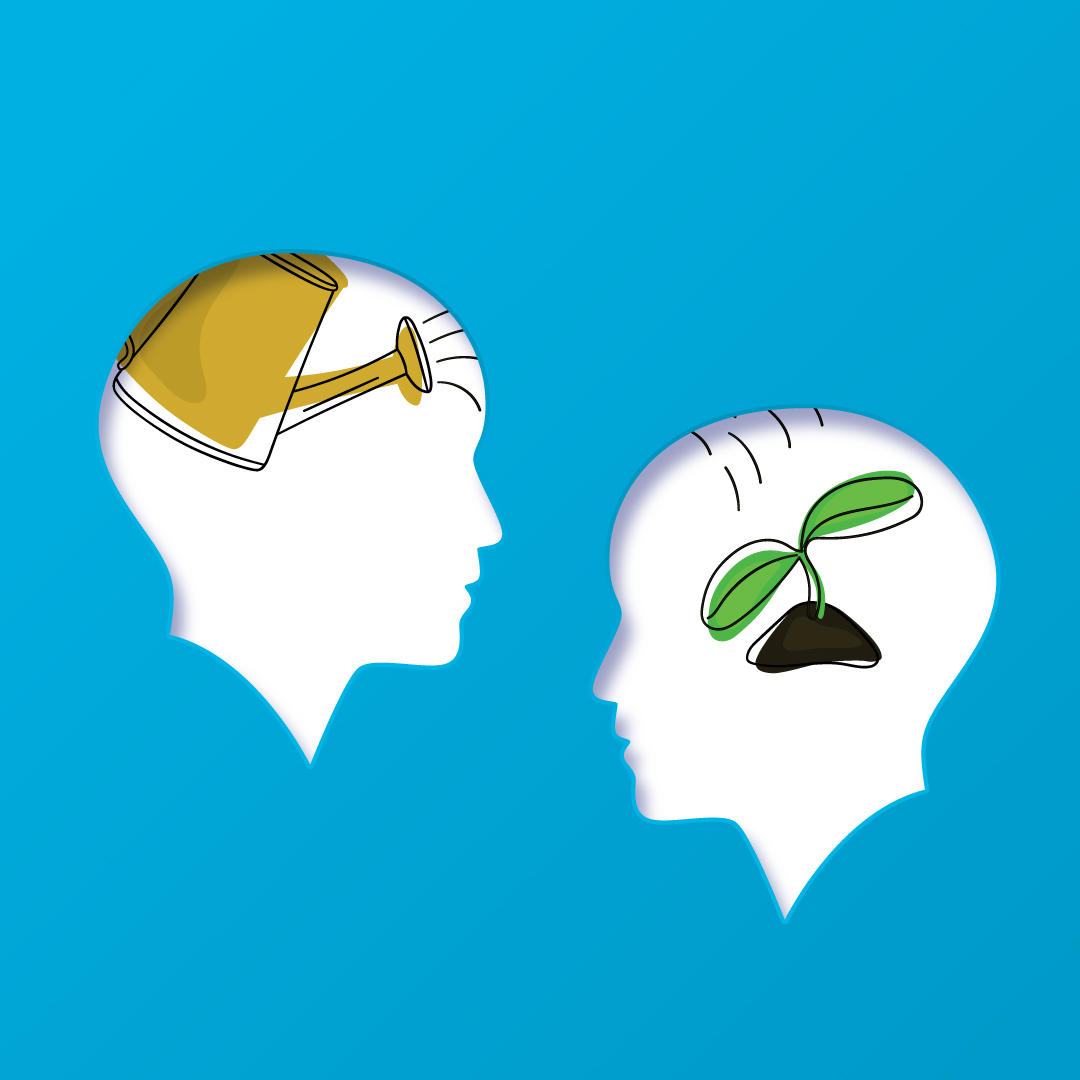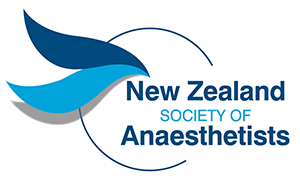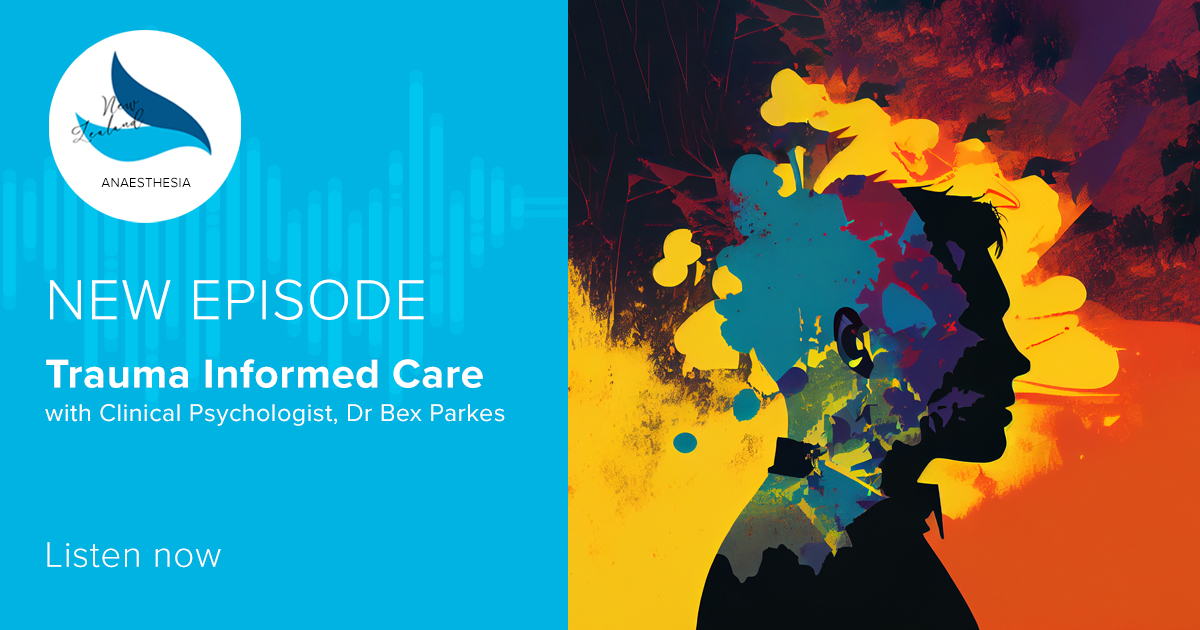Mentorship: Improving workplace wellbeing

Feature article from NZ Anaesthesia Issue 64, April 2024.
Read the full magazine here.
Te Toka Tumai’s Trainee Mentor Programme
Motivated to understand the evidence behind the wellbeing articles she was reading Te Toka Tumai Anaesthetist, Dr Nola Ng chose to embark on a Graduate Diploma specialising in Psychology.
During last year’s ANZAEC Visiting Lectureship Nola shared insight on Organisational Psychology from her studies and kindly returned to delve more into one initiative mentioned in her presentation – a mentoring programme at Te Toka Tumai.
“A couple of the papers that I’ve found particularly interesting in the diploma are around workers’ wellbeing” Nola shares. “How making improvements for workers in the workplace will help them feel valued, improving their wellbeing, their work experience, and career success. Mentoring came up repeatedly as one of the examples of things that organisations can do and I saw an opportunity for us to do this in our specialty.”
The business world and many other industries have long recognised the importance of mentoring. The ‘new kid’ who dreams of becoming a CEO typically has various mentors along the way guiding them towards reaching their goals.
“As a supervisor of training, I saw the need for trainees to also have someone external to talk to. Someone who wasn’t directly associated with the College and who trainees could talk to beyond their performance as a trainee or doctor. A mentor can be helpful in that role.”
Nola alongside the Perioperative Wellbeing Lead at the time, Dr Tom Fernandez, and Dr Rachel Bell, a fellow who also had an interest in wellbeing, launched a Te Toka Tumai wide anaesthesia mentoring programme.
How the programme works
The programme is voluntary. “For a mentoring relationship to work, you have to want to be there,” Nola says.
“Anaesthetic registrars who are on the training scheme are matched with a SMO mentor. Our pool of mentors are also volunteers and are not expected to sign up for every cycle.”
“All mentors write a profile about themselves by completing some questions, such as what department they currently work in, any anaesthetic interests and responsibilities, personal background, and perceived benefits of being a mentor.”
“At the time registrars are due to start, we email them about the programme using an opt-out system. We ask them to rank at least five mentors based on these profiles and matches are made by myself, Tom, and a fellow who is elected to the wellbeing role in our department.”
When the programme launched, Nola and the team coordinated a series of information sessions and reference materials, which are available for mentors and mentees to use. They include videos and downloadable material on what mentoring is, the role of mentors and mentees and conversation guides.

Not a coach
Coaching and clinical supervision are different to mentoring. This means the role a mentor plays is different to that of a clinical coach or Supervisor of Training. “Although there may be some overlap in
the topics discussed, the mentor’s role is to supportively challenge a mentee by listening reflectively and sharing their own knowledge and experiences. It’s a relationship that lasts several months and sometimes even decades. In contrast, coaching is short term and goal directed. Clinical coaches are performance driven, using their unique set of skills to help their client achieve their goals.” Nola explains.
“We highlight to both mentors and mentees that the whole point of the relationship is for the mentee to lead. The mentor’s role is not to solve a mentee’s problems. They are there to facilitate the mentee working through their problems. No one knows that trainee’s situation better than themselves, there are so many other factors they may be considering around a situation and it’s the role of the mentor to tease that out with questions to get them talking about these factors.”
Supporting everyone’s wellbeing
“One of the things we try to highlight in our programme is that mentoring is mutually beneficial to the mentee and the mentor. Anaesthesia training can be tough and the programme aims to support our trainees’ wellbeing. But it also supports SMOs’ wellbeing in terms of trying to keep them engaged and interested in the workplace. A big part of job satisfaction is that sense of belonging to an organisation and it’s easy, especially in a hospital as big as ours, to sometimes feel like just another number or person – that no one cares. Strengthening some of those workplace relationships and their role in those relationships, makes a big difference.”
“The programme gives mentees access to someone else’s experiences, boosts confidence and helps provide clarity by talking to someone who is just there to listen. Having an established programme takes away the stress of finding someone when you start working in a new place.”
“Mentors have told us through surveys of the programme how they like being able to support a future colleague, enjoy getting to know a trainee on a personal level and guide their career.”
“We know the impact role models have had on us and want to pass that forward.”
“There is also evidence in psychological research that mentoring can aid workers when they experience career plateau – a time in our working lives when we begin to question ‘is this it?’ ‘Now what else do I do?’ Mentoring can help mitigate these feelings by keeping you interested, facilitating an opportunity to meet new colleagues, providing a feeling of purpose, and someone who is listening to you and sharing in your stories.”
The programme is now in its third year and continues to see success with 82% of mentees and almost 70% of mentors involved saying they find the programme ‘very beneficial – beneficial’ in its most recent survey.
“It was also pleasing to see ANZCA include mentoring as a recognised CPD activity in the updated ANZCA CPD programme”, Nola adds. “Now mentors can log each hour they spend with their trainee as an hour in their CPD. This is an amazing change, and it’s rewarding to be able to tell our mentors they can do this, and that the College recognises the importance of their contribution to our specialty.”
Photo credit: fxquadro
Watch a recording of Nola’s presentation ‘Organisational Psychology, an anaesthetist’s perspective’ and the 2023 ANZAEC Visiting Lectureship below.


